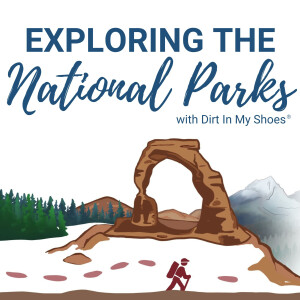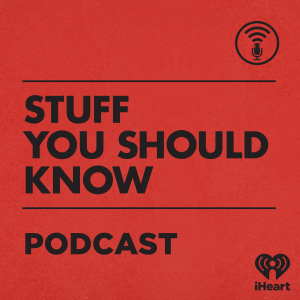
We have a new podcast! It’s called Universe Of Art, and it’s all about artists who use science to bring their creations to the next level. Listen on Apple Podcasts, Spotify, or wherever you get your podcasts.
Protecting Other Planets From Earth’s Germs
For decades, people have been trying to figure out how to avoid contaminating other planets as they explore them—an idea called planetary protection. As missions venture forth to places such as Mars or Jupiter’s moon, Europa, the need to protect worlds that could support life becomes more critical. And at the same time, as space programs begin to bring samples back to Earth from places like Mars or asteroids, planetary protection becomes a concern in another way—the need to protect Earth from potential unknown life forms from the cosmos.
Sending humans to another world raises the stakes even more. NASA has a limit of no more than 300,000 spores (single-celled organisms) allowed on board robotic Mars landers. But human bodies contain trillions of microorganisms, making it impossible for human missions to achieve the same level of microbial cleanliness as robotic landers.
Dr. Nick Benardini is a NASA official responsible for ensuring that the proper precautions are made to prevent humans from contaminating outer space. Ira Flatow spoke to him about how to avoid spreading microbes between planets.
Ask An Expert: An Evolution Education
Most people raised in the U.S. were taught about evolution in science class growing up. But how much do you actually remember? Charles Darwin’s On the Origin of Species or Gregor Mendel’s pea plant experiments may ring a bell, but it’s likely most of us could use a refresher.
A good grasp on the science of evolution is extra important these days, argues Prosanta Chakrabarty, author of the new book, Explaining Life Through Evolution, and curator of fishes at Louisiana State University. In 2008, Louisiana’s governor signed the Louisiana Science Education Act, which allows schools to teach creationism as an alternative to evolution.
Chakrabarty joins Ira to talk about the science behind evolution and take questions from listeners.
Read an excerpt of the book here.
To stay updated on all-things-science, sign up for Science Friday's newsletters.
Transcripts for each segment will be available the week after the show airs on sciencefriday.com.
More Episodes
757: Fighting Banana Blight | Do Birds Sing In Their Dreams?
 2024-04-25
2024-04-25
756: Why Is Solving The Plastic Problem So Hard?
 2024-04-24
2024-04-24
755: What Worsening Floods Mean For Superfund Sites
 2024-04-23
2024-04-23
754: The Global Mental Health Toll Of Climate Change | Capturing DNA From 800 Lakes In One Day
 2024-04-22
2024-04-22
753: Clean Energy Transition Progress | Avian Flu In Cattle And Humans Has Scientists Concerned
 2024-04-19
2024-04-19
752: A Cheer For The Physics Of Baseball
 2024-04-18
2024-04-18
752: Carbon Cost Of Urban Gardens And Commercial Farms | Why There's No Superbloom This Year
 2024-04-17
2024-04-17
751: Inside The Race To Save Honeybees From Parasitic Mites
 2024-04-16
2024-04-16
750: The Brain’s Glial Cells Might Be As Important As Neurons
 2024-04-15
2024-04-15
749: Limits On ‘Forever Chemicals’ In Drinking Water | An Important Winter Home For Bugs | Eclipse Drumroll
 2024-04-12
2024-04-12
748: Investigating Animal Deaths At The National Zoo
 2024-04-11
2024-04-11
745: Eating More Oysters Helps Us—And The Chesapeake Bay
 2024-04-10
2024-04-10
747: How Trees Keep D.C. And Baltimore Cool
 2024-04-09
2024-04-09
744: Predicting Heart Disease From Chest X-Rays With AI | Storing New Memories During Sleep
 2024-04-08
2024-04-08
746: Recipient Of Pig Kidney Transplant Recovering | Answering Your Questions About April 8 Eclipse
 2024-04-05
2024-04-05
743: Our Inevitable Cosmic Apocalypse
 2024-04-04
2024-04-04
742: The Complicated Truths About Offshore Wind And Right Whales
 2024-04-03
2024-04-03
741: The Bumpy Road To Approving New Alzheimer’s Drugs
 2024-04-02
2024-04-02
740: ‘3 Body Problem’ And The Laws Of Physics | In Defense Of ‘Out Of Place’ Plants
 2024-04-01
2024-04-01
739: Baltimore Bridge Collapse | Mapping How Viruses Jump Between Species
 2024-03-29
2024-03-29
Create your
podcast in
minutes
- Full-featured podcast site
- Unlimited storage and bandwidth
- Comprehensive podcast stats
- Distribute to Apple Podcasts, Spotify, and more
- Make money with your podcast
It is Free
You may also like

Exploring the National Parks


The Covert Narcissism Podcast


Greece Travel Secrets Podcast


Stuff You Should Know


Timcast IRL

- Privacy Policy
- Cookie Policy
- Terms of Use
- Consent Preferences
- Copyright © 2015-2024 Podbean.com



 iOS
iOS Android
Android